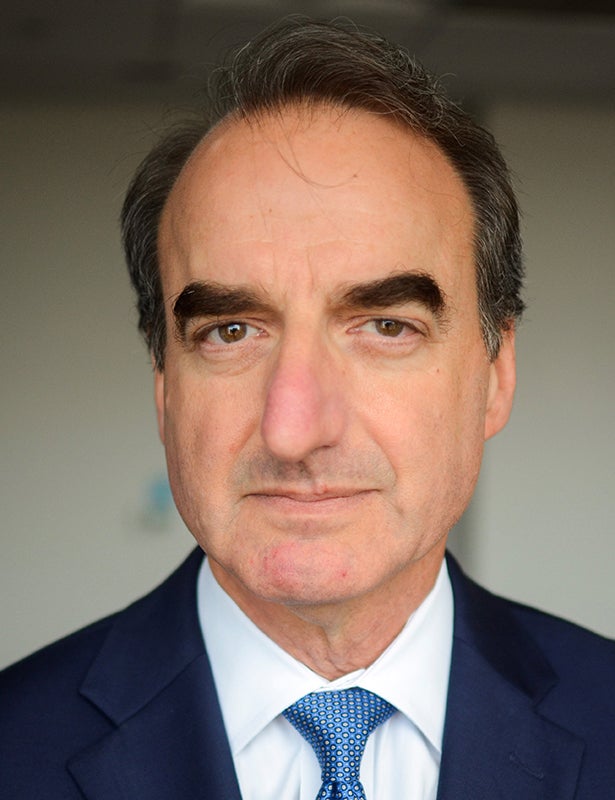December 12, 2020 — Washington, D.C.
This piece originally appeared in The Times of Israel.
The announcement by King Mohammed VI that Morocco would establish diplomatic relations with Israel, the fourth decision by an Arab government in as many months to normalize ties with the Jewish state, is more than a foreign policy victory for the outgoing Trump administration, although it is surely that.
It is a breakthrough of historic significance on multiple levels.
The Arab country with the oldest and largest Jewish community – as well as the largest Jewish diaspora – has opted for political and economic ties with the Jewish state, itself home to some 1 million Jews of Moroccan descent.
America’s oldest ally in the region is reopening relations with America’s closest ally.
The oldest continuous monarchy in the Arab world, the Alaouite dynasty, is linking its destiny with the Middle East’s one parliamentary democracy.
And King Mohammed VI, chair of the Al-Quds Committee of the Organization of Islamic Cooperation, is reaching out in a gesture of peace to Israel, long the target of that committee’s political advocacy.
In this season of Middle East game-changers, there is something uniquely satisfying in the news that Morocco and Israel, which enjoyed public but low-level relations in the mid-to-late 1990s, will return to and then move beyond those ties.
That something is civilizational, for Morocco and the Jewish people have been bound together, and have shaped each other, for millennia. To acknowledge that central fact of Moroccan identity, the drafters of the kingdom’s new constitution in 2011 included a reference to the country’s Jewish (literally, “Hebraic”) roots – the only citation of its kind in the Arab world. In fact, it is likely the only such reference in any national constitution.
To travel across Morocco is to traverse and revisit Jewish history.
It is to step into the world of the Berber Jews, who thrived in the Atlas Mountains in the centuries before Christianity and Islam reached North Africa. It is to marvel at the ancient Ibn Danan Synagogue in Fez and the beautifully restored Slat al-Fassiyin Synagogue in the same city; to feel the painful loss of a once-vibrant community when visiting Meknes; to see faith in the community’s perseverance revived in museums and active synagogues in Tangier, the lively Mellah in Marrakech, and of course, Casablanca, where the majority of the country’s Jews now reside.
It is to spend a weekend at the Atlantic Andalusia Festival in Essaouira, celebrating Judeo-Arab musical traditions with performers from Israel and across the Mediterranean basin, studying this coastal city’s proud Jewish history at the House of Memory, Bayt Dakira, and seeing interfaith dialogue and cooperation come to life in Essaouira’s Jewish native son, André Azoulay, adviser to the King and to the late King Hassan II before him.
It is to trod the uniform aisles of the refurbished Jewish cemeteries of dozens of Moroccan cities – a mammoth project financed by the Palace and managed by the Secretary-General of the Conseil de la Communauté Israelite du Maroc, Ambassador Serge Berdugo, a former Minister of Tourism – and to learn from Ambassador Berdugo about the King’s support for even more ambitious restorations of synagogues and other sites, many of them no longer of use to the country’s diminished Jewish population.
It is to hear of the protection of the country’s hundreds of thousands of Jews during World War II by then-Sultan-Mohammed V, grandfather of the current monarch, from the antisemitic laws of the Vichy French occupation. “There are no Jews in Morocco,” he told the Nazi collaborators. “There are only Moroccan subjects.”
It is also, of course, to hear of the deadly riots in a number of Moroccan cities after Israel’s establishment, and the thousands of Jews who fled in 1948-49, and then again in response to other Arab-Israeli wars in the decades hence.
It is to audit a Hebrew class at the well-appointed Narcisse Leven, a Jewish day school in Casablanca, for students who are mostly Muslim, or to be given the opportunity to lecture future religious leaders at the Imam Academy in Rabat on the similarities between Judaism and Islam.
AJC colleagues and I have been privileged to have all of these experiences in repeated visits to Morocco over the last 25 years. Again and again, we have been struck by the country’s vitality and resiliency; again and again, we have seen, and encouraged the realization of, the potential of Moroccan-Israeli cooperation.
In announcing his momentous decision to the Moroccan people, King Mohammed emphasized his commitment to “the just Palestinian cause,” a negotiated two-state solution to the Israeli-Palestinian conflict, and the preservation of “the special status” of Jerusalem. He also spoke of “the special ties that unite the Jewish community of Moroccan origin, including in Israel,” to the Moroccan sovereign. What he did not say directly, but what is widely understood, is that this monarch – the so-called Commander of the Faithful, responsible for the welfare of all believers in his realm – has now, by engaging Israel, afforded himself unique influence to advance the causes he champions.
If he assumes this responsibility with the same sensitivity that has characterized his ministration of his country’s Jewish community and heritage, all the region’s people will owe him their gratitude. The season of game changing may be just beginning.
Jason Isaacson is Chief Policy and Political Affairs Officer of the American Jewish Committee.



